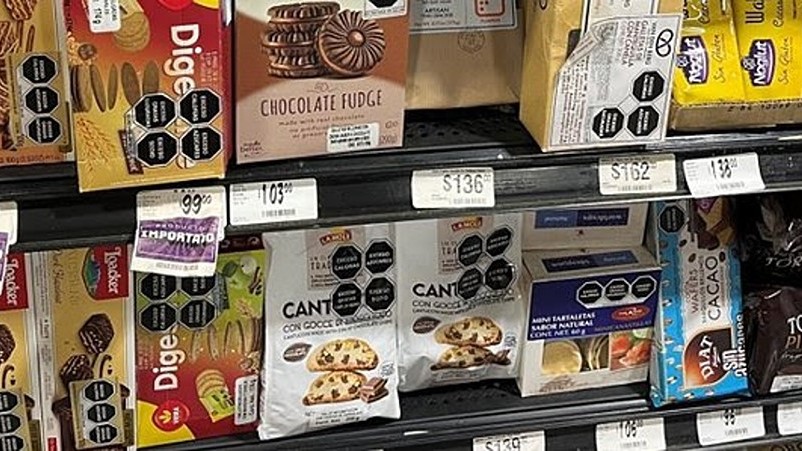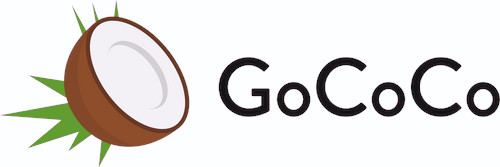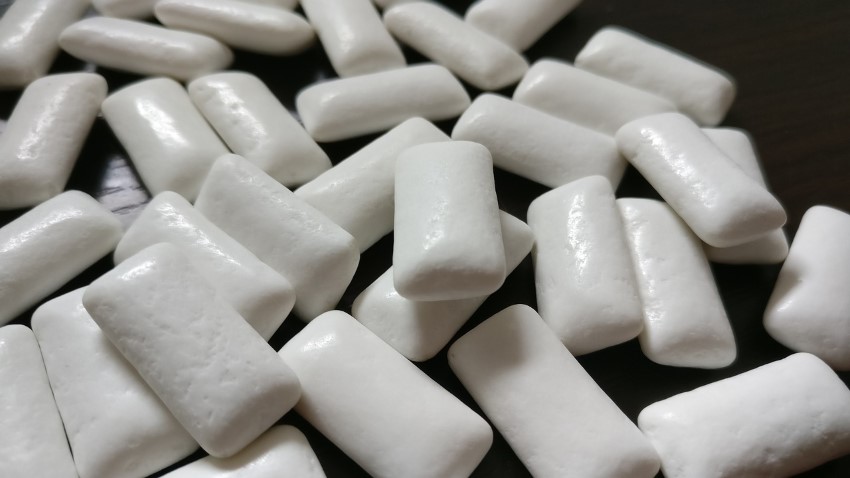From GoCoCo
The Chilean food labeling law passed in 2016 made front-of-pack (FOP) warning stop signs mandatory for products with excessive amounts of added sugar, saturated fat, salt, or calories. As the FDA is designing new front-of-pack labeling for the US, we studied the impact these pioneer Chilean stop signs would have in the US.
The Study
The study examined 364,372 packaged food products from the USDA database and revealed 71% of products would display at least one big black stop sign, for excessive sugar, salt, saturated fat or calories.

The Findings
The prevalence of warning signs would be:
- 41% of products “High in calories”
- 37% of products “High in sugar”
- 36% of products “High in sodium”
- 26% of products “High in Saturated Fat”
The most prevalent number of warnings would be 1 or 2 per food item.
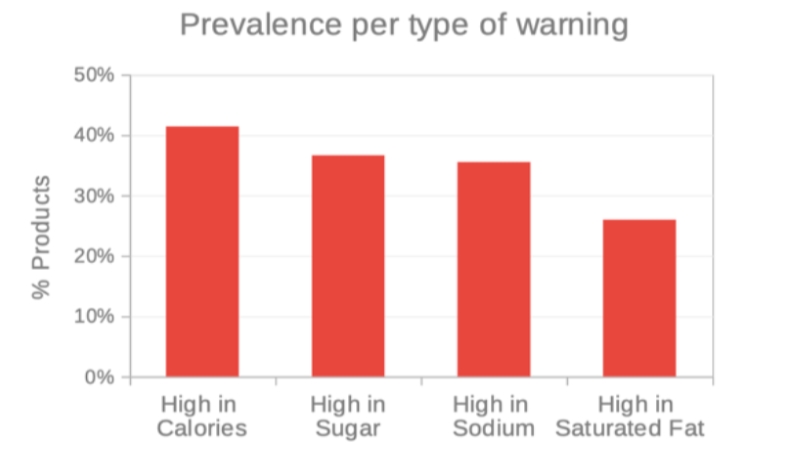
Source: GoCoCo.app
The prevalence of warning signs would be:
- 41% of products “High in calories”
- 37% of products “High in sugar”
- 36% of products “High in sodium”
- 26% of products “High in Saturated Fat”
The most prevalent number of warnings would be 1 or 2 per food item.
The most common combination of warnings would be
- 25% of products both High in Calories & High in Sugar
- 21% of products both High in Calories & High in Saturated Fat
The study also included producing data per food category:
- Worst food category for salt warnings: Sausages & luncheon meats (86%!).
- Worst food categories for sugar warnings: Sweets; Breakfast cereals; Baked products.
- Worst category globally: Baked Products.
- Best food categories all around: Cereal, Grains & Pasta; Legumes & Legumes products, and Fruit & Veg products.
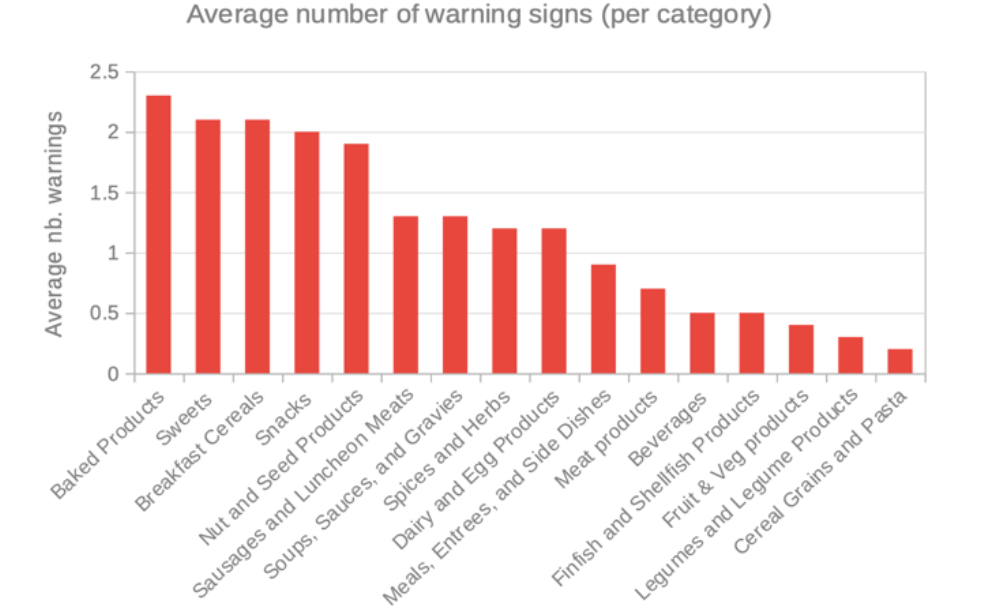
Source: GoCoCo.app
This study provides valuable insights into the potential impact of front-of-pack warnings on US products: it would not go unnoticed!
Such labeling systems have shown promising success, not only in Chile but also in other countries such as Mexico, leading to a shift in consumer purchasing patterns and nudging manufacturers to reformulate their products without impacting price. Julie Ruelle, RD at GoCoCo states “FOP labeling laws have the potential to contribute to reducing the prevalence of chronic disease by allowing consumers to make more informed decisions and pushing food manufacturers to reformulate their products.“
With ongoing discussions and trials regarding front-of-pack (FOP) labeling in the US led by the FDA, Bertrand Amaraggi, CEO of GoCoCo is confident: “These findings support the positive impact such FOP labels would have on our shopping environment. Let’s not make the mistake of thinking that a single measure will solve the multifaceted problem of obesity. But it is definitely a step in the right direction, and we should commend it. We look forward to seeing the result of the new labeling and its impact on consumer food choices.”
In any case, the issue of new reglementation and its coming into effect will take time. So in the meantime, the GoCoCo App considers Chilean warning as part of its food scanner scoring, alongside other criteria such as ultra-processing.
From GoCoCo
GoCoCo is a mobile application accessible on the App Store and Google Play that helps consumers detect unhealthy ultra-processed food in supermarkets and suggests healthier alternatives. It offers rigorous nutritional information based exclusively on scientific criteria (the World Health Organization nutritional profile model, the NOVA system for detecting ultra-processed foods and the Chilean warning labels) and has access to a database of over 600,000 products in the United States. With over 700,000 downloads worldwide, GoCoCo is committed to empowering consumers to make informed and healthier food choices, reinforcing our dedication to enhancing public health and promoting a real-food lifestyle. For more information, contact: Bertrand Amaraggi, bertrand@gococo.app.
